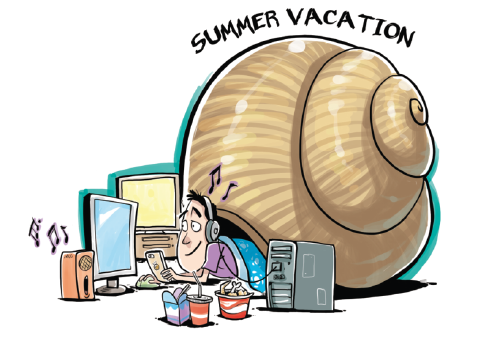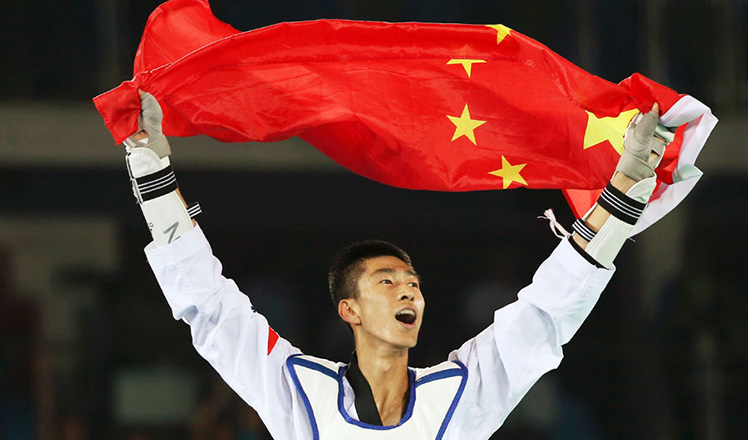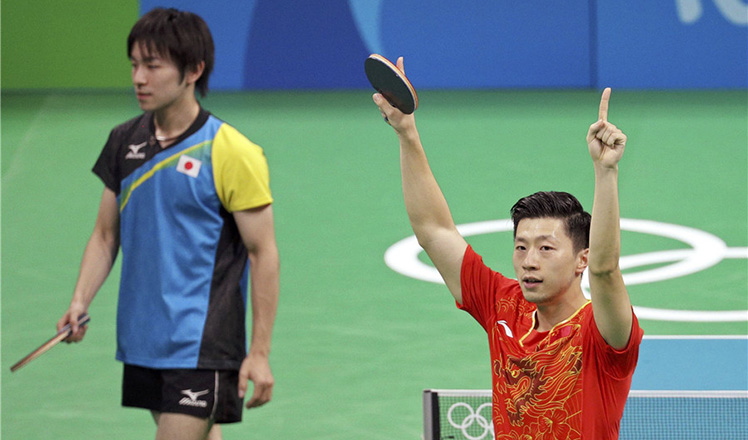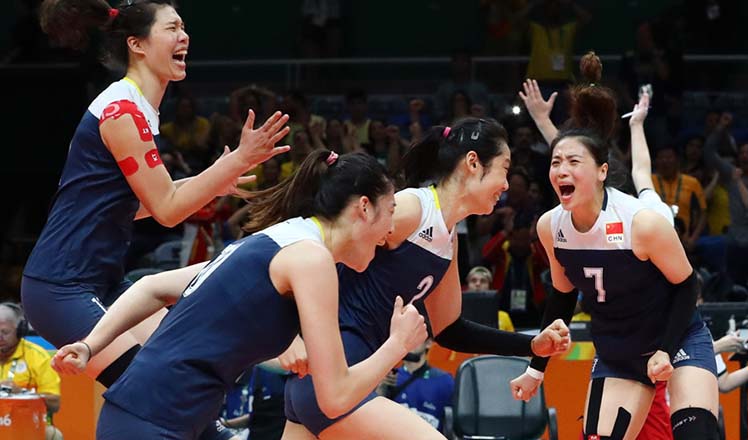Students must make full use of vacations
Updated: 2016-08-19 08:32
By XIONG BINGQI(China Daily)
|
||||||||
 |
|
CAI MENG/CHINA DAILY |
More than half of the college students who responded to a nationwide survey said they didn't participate in outdoor activities during the summer vacation. They wake up late, have their meals at irregular intervals and spend a majority of their time surfing the internet, according to the survey. And more than 70 percent of the students said life during the summer vacation was boring and meaningless.
The survey results should come as no surprise, because even when regular classes are held many college students don't maintain a healthy daily routine, preferring to stay in dormitories throughout the day and doing nothing except routine college work.
The survey should awaken students to the real meaning of vacations. It should also remind college authorities and parents to provide more resources and create more opportunities for students to make vacations meaningful.
Many Chinese students lose their motivation after entering college, because Chinese colleges don't offer adequate academy and career planning education. And those students who lack interest or motivation, or are not independent-minded don't know how to manage themselves at college.
Up to high school, many Chinese students' education and life are planned and managed by their parents and teachers. Once such students enter college, they are basically on their own and don't know what to do, except perhaps surf the internet. According to a survey, about 20 percent of college students are seriously addicted to the internet, which affects their daily life.
Some colleges are aware of this problem and have taken measures to cope with it. For example, they prohibit freshmen from buying notebooks or tablets, switch off dormitory lights at a given time every night or require students to participate in morning exercise. Although such measures are effective to a certain extent, they fail to sufficiently motivate students to take part in constructive activities.
The need therefore is to make academic and career planning part of the education syllabus. Some colleges do assign students vacation "homework" that involves social activities. But some students seem to ignore them because they don't make a difference to their final academic scores while others persuade an institution or company to issue a certificate for social work without ever participating in it.
In such circumstances, colleges should provide opportunities and suggestions for social activities to help students do take part in social work. They should also require records of the social work done by students instead of certificates to evaluate their performance. And social organizations should take the lead in spreading social education by providing guidance for and offering internship to college students.
Besides, the period between passing the college entrance examination and actually attending a college is vital for students. So parents should ensure their children don't waste those precious days doing nothing, for which they have to communicate with them.
In China, too much attention is paid to academic performance. School education, social education and family education all focus on exam scores. Students of primary and middle schools are busier during holidays than school days because they have to attend special classes to improve their scores. So when students enter a college and know that they no longer have to pursue high scores, they find nothing meaningful to do, especially during vacations. Even those college students who appear busy during holidays are actually preparing for post-graduate entrance exams or exams to enter overseas universities.
Students are welcome to go in for higher studies, but they should also make full use of their vacations to improve their knowledge about the world, sharpen their interactive skills and take part in meaningful activities, and exercise regularly to maintain their physical health.
The author is deputy director of the 21st Century Education Research Institute.
- Malaysian authorities say ship carrying diesel hijacked
- Army commander: THAAD would 'easily affect' China-US ties
- Twin panda cubs confirmed born in Vienna zoo
- Four killed in boat collision in Greece
- Premier Li to receive Aung San Suu Kyi
- S Korean president names 3 new ministers for partial reshuffle

 Zhao wins China's first gold medal in men's taekwondo
Zhao wins China's first gold medal in men's taekwondo
 World's top 10 innovative economies
World's top 10 innovative economies
 Dancing, food and religion, all in a Xinjiang wedding
Dancing, food and religion, all in a Xinjiang wedding
 Men's table tennis overcomes singles loss to win team event
Men's table tennis overcomes singles loss to win team event
 China edges Brazil in volleyball quarterfinals
China edges Brazil in volleyball quarterfinals
 China's women's table tennis team sweeps gold
China's women's table tennis team sweeps gold
 Artists build sand sculptures to greet upcoming G20
Artists build sand sculptures to greet upcoming G20
 Top 10 biggest auto makers of 2015
Top 10 biggest auto makers of 2015
Most Viewed
Editor's Picks

|

|

|

|

|

|
Today's Top News
Trump outlines anti-terror plan, proposing extreme vetting for immigrants
Phelps puts spotlight on cupping
US launches airstrikes against IS targets in Libya's Sirte
Ministry slams US-Korean THAAD deployment
Two police officers shot at protest in Dallas
Abe's blame game reveals his policies failing to get results
Ending wildlife trafficking must be policy priority in Asia
Effects of supply-side reform take time to be seen
US Weekly

|

|









